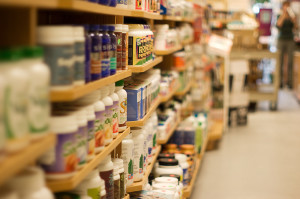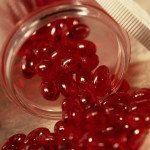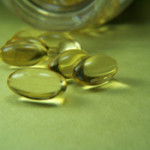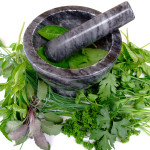 Inflammatory bowel diseases like ulcerative colitis have no known cures – but probiotics are fast becoming a natural remedy treatment option with a great deal of promise. Researchers have been studying probiotics, the “good” bacteria in the gut, for years. Could they help change the future for those suffering from IBD conditions like ulcerative colitis?
Inflammatory bowel diseases like ulcerative colitis have no known cures – but probiotics are fast becoming a natural remedy treatment option with a great deal of promise. Researchers have been studying probiotics, the “good” bacteria in the gut, for years. Could they help change the future for those suffering from IBD conditions like ulcerative colitis?
What are Probiotics?
Probiotics are organisms like bacteria and also yeast that are used to promote good health. Have you ever eaten yogurt? Well, if you read the label, it will tell you that it contains “live cultures.” You might not know what those are but still not be keen on eating anything that might still be alive inside you. It might interest you to also know that the human body is alive with many such small organisms. Bacteria naturally live inside the body where they thrive and help with day-to-day functions, especially regulating your immune and inflammatory system.
These bacteria belong here. There are almost 500 different types residing and working inside of you like a little community. Many make their home in the intestinal tract, fueling absorption of vital nutrients, protecting the integrity of the tract and moving waste along to its excretion point. They all have a job to do and that is to create a delicate balance that keeps the immune system working as it should.
This balance is interrupted when a disease process occurs like an infection. The immune system kicks in to fight the bacterial or viral invaders and restore balance. When you have a fever brought on by this infection, antibiotics are taken to kill them off. Unfortunately, it can kill off the good bacteria too, creating an imbalance in your body. With an inflammatory bowel disease, damage to the intestines could be the catalyst for the abnormal response that results in the inflammation.
Probiotics are designed to challenge the immune system and make it stronger. In the age of “superbugs”, our immune systems can’t seem to cope since we have basically sanitized everything. The friendly bacteria in probiotic formulas may help reduce the incidence of some symptoms like diarrhea. They assist in the breakdown of food as well.
The Connection between Probiotics and IBD
From what we’ve reported above, research shows promising evidence that the introduction of more helpful and friendly bacteria into the body, into the digestive tract, may be a positive approach to treatment for ulcerative colitis and Crohn’s disease. It can help combat the disease process.
One of the best known probiotic products to consider is called VSL #3. Odd name, but a high potency therapeutic product with a very high number of the beneficial bacteria. Certain doctors prescribe this (though you can get it over-the-counter) to help their patients with ulcerative colitis and other inflammatory bowel disorders. Like most of the better products, you will find a mixture of multiple types of bacteria, not just one or two. You will also find high numbers of each one. And, to be on the safe side, many manufacturers ship their probiotic products with cool packs to keep the bacteria alive.
Dead probiotic bacteria don’t really help you much. For that reason, as soon as you get a bottle of probiotics, you will want to refrigerate them (but NOT freeze them).
There is a word of caution here. While people have been eating bacteria in yogurt and cheese and other food for many, many years, the game is changed with you throw in a condition like inflammatory bowel disease. The immune system may be compromised or weakened by treatment drugs or the severity of the disease. Adding more bacteria in the form of probiotics at this point might do more harm than good in some people. However, most people with ulcerative colitis are likely to notice some benefit with the right probiotic supplement for them.
As always consult your doctor before trying any alternative treatments while under their care. Discuss your options and make an informed choice.






Leave a Reply
You must be logged in to post a comment.